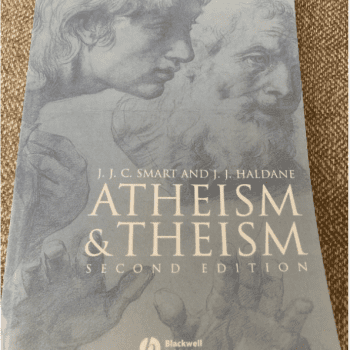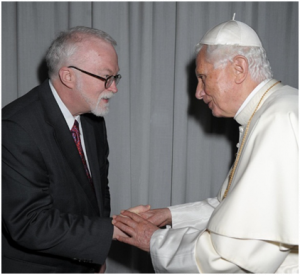That’s the title of an article I just published in Sacred Tribes Journal 7.1 (Spring 2012). It is one of several articles in that issue dealing with the new book by my friend, Stephen H. Webb, Jesus Christ, Eternal God (Oxford University Press). Here’s how my article begins (notes omitted):
Eternal God (Oxford University Press). Here’s how my article begins (notes omitted):
In his learned and provocative tome, Jesus Christ, Eternal God, Stephen H. Webb plows the soil of hallowed ground. He broaches a topic that most classical theists have considered a settled question for quite some time, namely, that God is by nature the immaterial ground of being. Webb concludes, most remarkably, that matter is one of God’s perfections, and for that reason, God—not just the post-incarnational second Person of the Trinity—is embodied.
He does not offer a simple argument, with a few premises and a conclusion, as one is accustomed to seeing in contemporary analytic philosophy of religion. Rather, his case is in the form of an extended engagement with a variety of figures in the history of Christian theology and American religion, including Origen, Arius, St. Augustine, Nestorius, St. Thomas Aquinas, Karl Barth, and Joseph Smith, Jr. Along the way, Webb finds the time to discuss issues in science, metaphysics, and philosophical anthropology.
This is not to say that Webb does not offer any arguments. It just means that in making his case he takes special care in trying to account for points of view with which he disagrees while properly situating his own position in the history of Christian thought and philosophical theology.
Consequently, it would be sheer folly for me to attempt to offer an assessment of Webb’s case that claims to capture his remarkable tapestry of philosophical and theological engagement. For this reason, I will limit my task to raising three questions in order to draw critical attention to what I believe is the operative assumption that drives Webb’s case for an embodied God: Christianity can be dehellenized and still remain Christianity.
You can read my article here. The entire issue may be accessed here.












